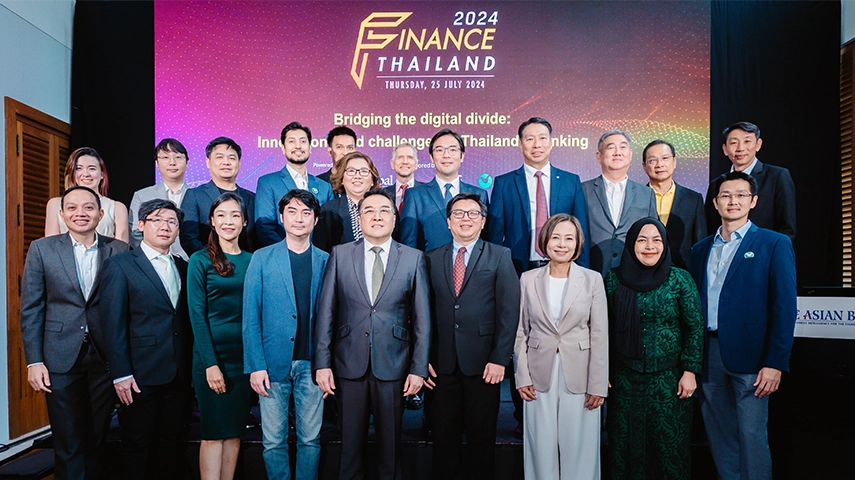Interviewed By Foo Boon Ping
Senior executives and heads of transaction finance and risk management in Asia Pacific discussed cross-border cash management, trade and supply chain challenges and opportunities amid an increasingly complex risk landscape. The rise in global inflation and interest rates, precipitated largely by supply chain disruptions and shocks from COVID, a worsening geopolitical landscape and retrenchment in globalisation, has increased market uncertainties and elevated risks on multiple fronts, across country, credit, cyber, interest rate, liquidity, market, operational and political dimensions.
Sebastien Avot, Atul Jain and Marc Recker of Deutsche Bank, Adrian Ong and Ng Poh Yee of United Overseas Bank, Ashutosh Kumar of Mizuho Bank, Kai Fehr, Michael Sugirin and Pradeep Nair of Standard Chartered, Venkat ES and Parvez Aziz of Bank of America, Amit Talgeri of Axis Bank Limited, Tareq Refat Ullah Khan of BRAC Bank Limited, John TM Wong of Hang Seng Bank, Shekhar Bhandari of Kotak Mahindra Bank, Yap Kwee Hong of OCBC Bank and Nguyen Thi Quynh of Techcombank discussed the evolving dynamics of shifting global trade and supply chain flows, the future of correspondent banking amid heightened demand for speed, safety, security and transparency of cross-border payments. The important role of government-to-government collaboration to remove barriers and facilitate the digitalisation of cross-border trade and settlement. The overarching theme of incorporating ESG and sustainability factors into trade and supply chain financing operations was also on everyone’s mind.
Avot brought up how geopolitical imperatives have once again elevated regulatory compliance requirements and increased the cost of cross-border transaction processing and monitoring. Increased limits set on credit appetite of intermediary institutions have also resulted in rationalisation of key accounts and relationships.
Ong highlighted the opportunity costs of maintaining idle cash balances and how working capital advisory solutions could help businesses manage cash payments and collections effectively and provide much needed visibility across regional and global accounts.
Recker discussed how today’s cross-border payment, largely facilitated on SWIFT network, is one of the industry’s biggest assets but also the biggest problem. Common international standards for interoperability are still required to drive a revolution in cross-border payments. Wholesale settlement predicated on a common, international payment infrastructure such as blockchains or multi-CBDC (mCBDC) built across different central banks offers promise but has so far limited use-case and reach.
Ng talked about digital solutions resulting from COVID as enablers to accelerate supply chain finance but cautioned about the lack of standards, scale and data quality. Kumar observed the evolution of “just-in-time” to “just-in-case” inventory and the end of longer supply chains, pointing to ‘localisation’ and shrinking proximity between procurement and consumption activities.
The following key points were discussed:

The AWS Financial Services Symposium Singapore 2024 showcased how AI, data, and cloud technologies are revolutionising financial services. Industry leaders from AWS and HSBC shared insights into advancing innovation, regulatory responsibility…

On the eve of the Singapore Fintech Festival 2024, TAB Global and Temenos hosted an exclusive CXO networking reception at Swissotel, The Stamford. The gathering provided a relaxed setting for executives across the industry to connect and…

The Finance Philippines 2024: Leading Practitioner Roundtable on Technology Modernisation for Digital Banking and Lending Innovation explored the critical role of foundational technologies, financial inclusion, identity verification systems,…

On June 21, The Asian Banker held the 2024 Future of Finance China Summit in Beijing, themed "Challenges and Vision". The year 2024 is expected to be a challenging one globally due to intensified geopolitical tensions and increased trade…

At the Finance Thailand Leading Practitioner Roundtable 2024, industry leaders discuss strategies to address the high costs of regulatory compliance, technology modernisation challenges, and the importance of strategic collaborations in…

By continuing to browse this website, you agree to our privacy policy.